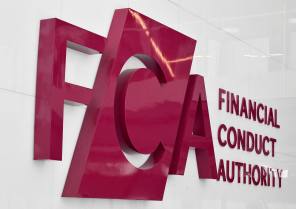

The Personal Investment Management & Financial Advice Association has warned a contingent charging ban may not lead to an improvement in the quality of pension transfer advice.
Instead the trade body has suggested "targeted and more rigorous supervision" of the defined benefit transfer market would yield better results.
The calls were made in response to the Financial Conduct Authority's consultation on the pension transfer market and a proposed ban on contingent charging, which Pimfa said would be a "significant" intervention in the financial advice market.
The regulator proposed the ban in a consultation paper published in July, with the exception of specific groups of consumers with certain identifiable circumstances, such as individuals suffering from serious ill-health or experiencing serious financial hardship.
The trade association warned to justify this change the FCA would need to raise the "evidential bar significantly higher".
Simon Harrington, senior policy adviser at Pimfa, said: "If an adviser is assisting on a transfer in pursuit of payment, they are either not concerned by the regulatory constraints which are there to guide them or confident enough that the constraints will not be applied to them.
"Given the evidence presented by the regulator, it remains unclear whether or not a ban is being pursued because the regulator is confident it will work or because they hope that it might."
In its response to the regulator Pimfa opposed the ban, stating "contingent charging may be a symptom to the provision of poor advice" and warning it was not the underlying cause.
Mr Harrington said: "Without effective regulation and targeted supervision of firms in this area, many of the issues which are prevalent in this market will continue to be addressed after the fact.
"Implicit in the argument that poor transfer outcomes are a result of poor advice has to be a recognition that this has been allowed to be perpetuated by a lack of regulatory oversight."
Pimfa pointed to "bad advisers" continuing to give "bad advice" as the primary cause of poor pension transfer advice, rather than how consumers are charged.
"Removing implementation fees will ultimately make the cost of advice more expensive for a number of savers.
"It is at odds with any pronouncements the FCA have made about a desire to close the advice gap and will ensure that pension transfer advice is solely the preserve of the wealthy.
"Banning implementation fees for the vast majority of clients will push the cost of pension transfer advice well beyond that," Mr Harrington added.
The FCA declined to comment.
rachel.mortimer@ft.com
What do you think about the issues raised by this story? Email us on fa.letters@ft.com to let us know.



